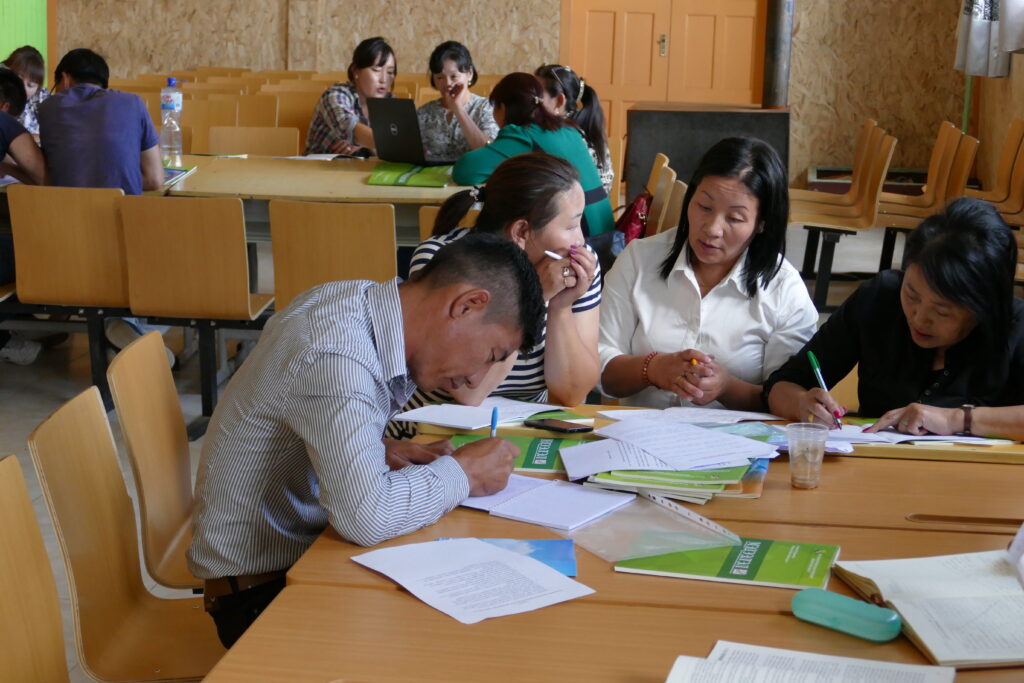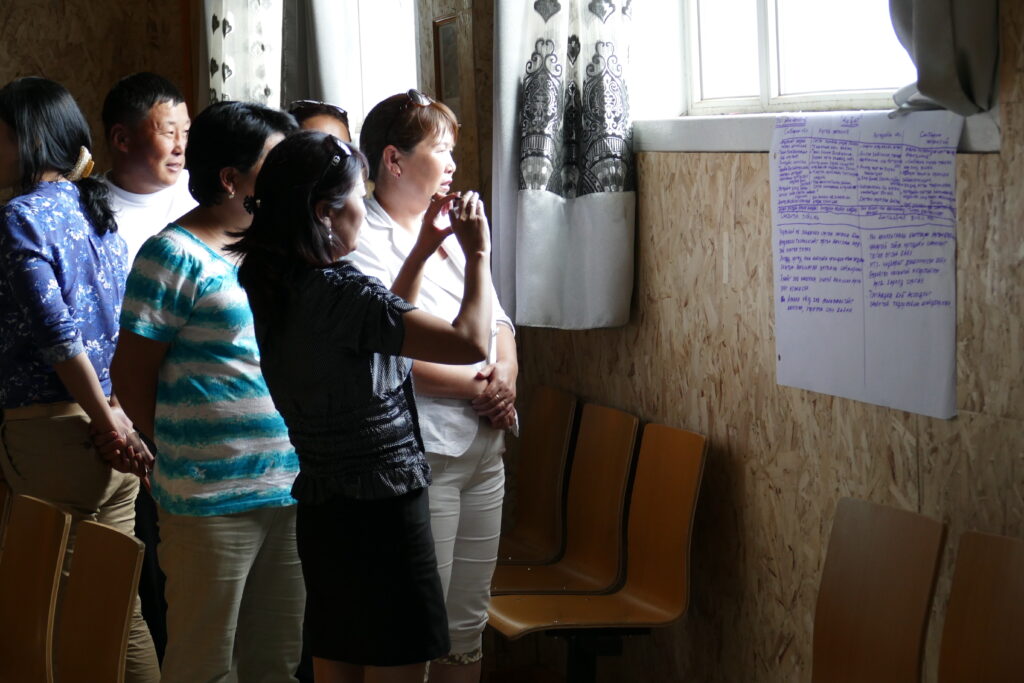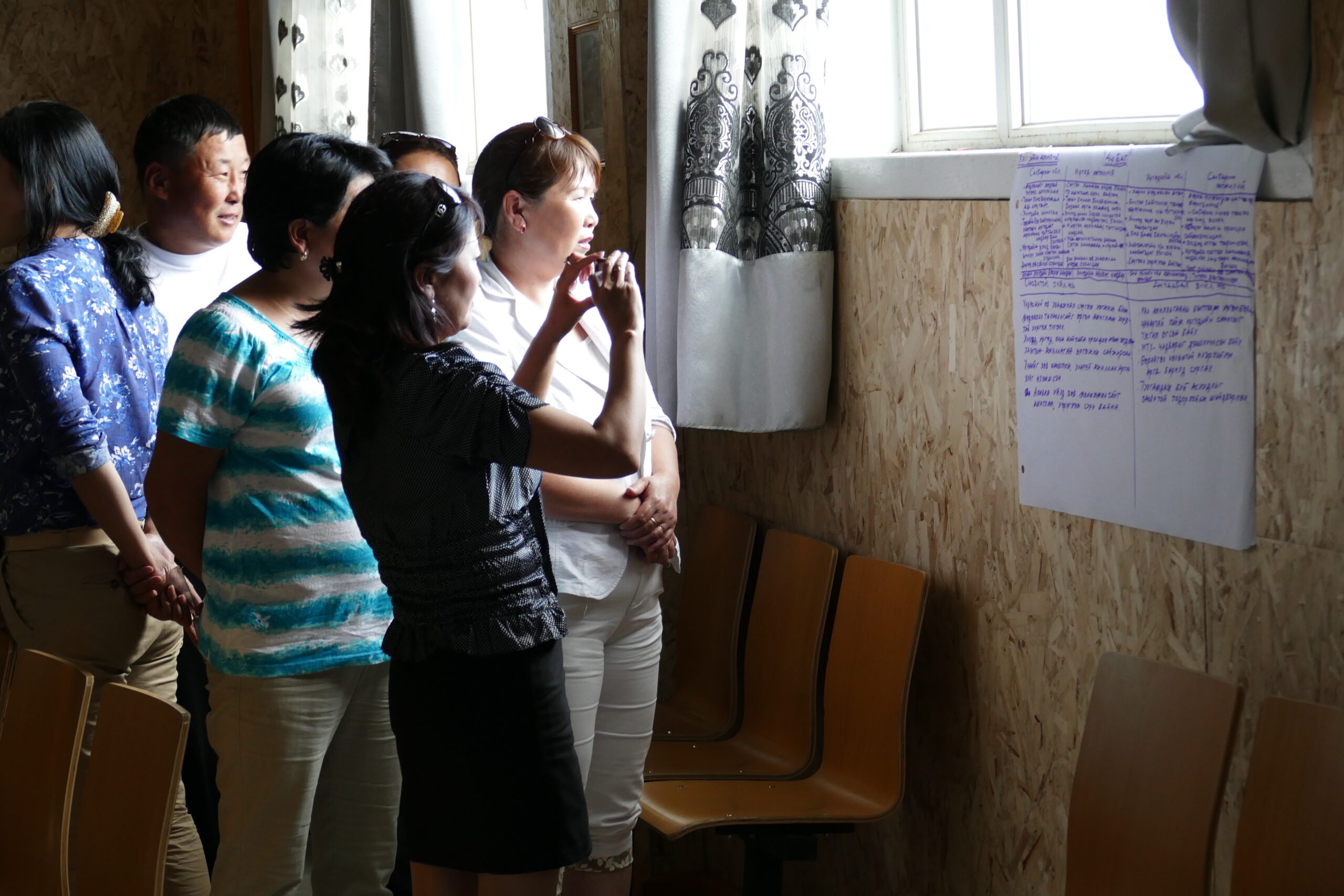Locally led development
In this first article, we argue that CICED’s work with ‘community-led development’ can be traced back to when we were part of the Danish School of Education, which in 1992 took on a task for DANIDA to support education sector reform in Mongolia.

When ignorance is the source of humility and respect
Socrates is quoted as saying: The more I know, the more I realize I know nothingResearchers and teachers at the Royal Danish School of Education in the early 1990s could also have said this. This realization that increased insight leads to knowledge that there is so much that we don’t know about was, in all its complex simplicity, the source of why CICED, from day one, has practised what is now known as ‘locally led development’. Or ‘localization’, as some call it, but which we are not particularly enthusiastic about. We’ll come back to that in a later article.
In 1992, Knud Mortensen, then Senior Advisor for Education at Danida, contacted Tom Ploug Olsen, Rector of the Danish School of Education: Would DLH be interested in a new form of cooperation with a partner in Mongolia? The country with the vast steppes under the blue sky had, like other socialist countries, collapsed with the Berlin Wall and the dissolution of the Soviet Union. At an international donor conference in Tokyo in the autumn 1991, Danida had agreed to the Mongolian government’s request to support the reform of Mongolia’s education sector and the restructuring/privatization of the agricultural sector.
In the early 1990s, the dominant form of technical support for developing education – and other sectors – in the Global South looked like this: The donor set up a project office in the (education) ministry of the country receiving the aid. The office was staffed with international experts and national specialists.
However, even international experts could have limited knowledge of specific topics in the education sector. The gaps were filled by a stream of other international experts who would make short visits and provide presentations and advice before flying on to the next assignment in another country with which they also had little knowledge.
In Mongolia, Knud Mortensen wanted to try something new. By agreement with the Mongolian Ministry of Education, the Mongolian State Pedagogical University was to be linked to a Danish institution with a similar profile. This started what Knud Mortensen called the ‘institutional linkage’ model. A form of collaboration where professionals engage in equal and institutionalized cooperation around knowledge sharing and the development of new knowledge and new practices.
A precursor to locally-led development
I asked Knud Mortensen what originally motivated this ahead-of-its-time model. He explains:
“I joined Danida/Ministry of Foreign Affairs in 1991. My task was to define and build Danish development aid for the public education sector. Danish assistance had previously been concentrated on selected vocational training, which was outside my field.
This was in itself an extensive task, as the school system is usually among the largest – or perhaps the largest – of a country’s public administration sectors. It is undoubtedly multifaceted, encompassing everything from public administration, curriculum and pedagogical development, special education, teacher training, book production and distribution, school construction, supervision and financing.
One person alone cannot know it all. So, if Danish aid to the education sector was to be as complex as the sector implies – which I believed it should be – rather than being limited to selected sub-areas (e.g. school construction), it had to involve and draw on the participation of relevant professional and administrative institutions in an arrangement of linkage. Hence the term Institutional Linkage (IL).
Even with this new model, at the Royal Danish School of Educational Studies (RDSES), we might have thought that we were more knowledgeable than our Mongolian colleagues and thus should act as advisors and consultants rather than professional colleagues.
In the early 1990s, there was a deep-rooted assumption that we in the industrial North were the smart ones and that those in the non-industrial and, therefore, underdeveloped South should listen carefully when we give good advice and preferably do as we said. Many in the Global South also shared this view, which is why they rarely objected to even the most ridiculous inventions among international experts.
I was not part of the RDSES in 1992, but I was offered the project coordinator job, as they seemed to lack a person with international experience, including some knowledge of the collapsed socialist world and reasonable English skills. The aim of the RDSES was the development of the Danish Folkeskole, i.e. grades 1-10. The international network was limited in those years.
From the beginning, I experienced great humility towards the task of supporting a reform of Mongolia’s education sector, as well as a fundamental respect for Mongolian colleagues. According to UNESCO data, we learned that Mongolia had a literacy rate of around 96%, second only to Japan in Asia. So, they must have been doing something right during socialist years.
Knud Mortensen said respect for local knowledge and experience was central to his idea of institutional linkage. He could accept that the international expertise/institutional partner did not have excellent country knowledge or insight into the partner country’s educational history and culture as long as there was a pronounced ability and willingness to “engage in interdisciplinary and cross-cultural collaboration”.
There was plenty of that at the RDSES, which resulted in all Mongolia-project employees meeting for many hours every Friday for two years to support each other on how our professional expertise could be best applied in the Mongolian context.
When you don’t even know your own backyard
Respect and humility were part of the Teacher Training College’s DNA. On top of that, they had just learned something that contributed to humility. DLH participated in the evaluation of hundreds of local school development projects that were carried out all over Denmark as part of the preparation for the 1993 reform of public schools. A school development project typically had a specific goal, which was thought to be achieved through relevant activities.
The evaluation showed that hardly any of the original objectives were met. All sorts of other things that had not been anticipated happened along the way. As a result, those of us going to Mongolia were equipped with the following realization: How on earth could we tell the Mongolians what to do with their schools and education sector, which we know absolutely nothing about when we cannot even formulate realistic objectives in our backyard?
This excellent and, subsequently, quite productive realization led to our first sentence in the meeting with our colleagues from the State Pedagogical University in Ulaanbaatar: We are not here to tell you what to do. You are the experts in your own education sector, in your own country. We are here to share knowledge and experience with you. Hopefully, some of our expertise and some of our experiences can be used. If not, we expect you to tell us honestly so that we can grow together.
Since 1992, this introductory rant has been standard in all partnerships that the old and current CICED have been and are a part of.
Things take time
“Toil but know, things take time” is a reminder from the Danish poet Piet Hein that comes to mind when you look at the immensely long journey that the ‘we in the north alone-know’ attitude has been on until today, where ‘locally led development’ and ‘shift the power’ are slowly gaining ground.
After all, it’s not as if the RDSES and the old CICED were alone in criticizing the prevailing view that our knowledge in the industrial north was superior to all other knowledge. The criticism was well known but probably best known in academic circles with a penchant for post-colonial studies, where contributions from people like Mahatma Gandhi, W.E.B du Bois, Andre Gunder Frank, Frantz Fanon and Edward Said were among the leading writings.
During the first years of international project work at the RDSES and the old CICED, two recent contributions to critiquing the Western development paradigm qualified and strengthened our argument and practice of ‘locally-led development’.
One was a report from the UN development organization UNDP Rethinking Technical Cooperation from 1993. In summary, the report states
– that traditional TA (technical assistance) models, which often rely on international consultants and externally driven projects, tend to undermine local knowledge and discourage sustainable development.
– this approach has created dependency instead of empowering local institutions and professionals. It often treats symptoms instead of root causes and does not consider recipient countries’ social, political and economic context.
The report emphasizes the importance of ‘capacity building’, a shift from simply transferring knowledge and skills to developing and strengthening local institutions and human resources. Capacity building must be seen as a long-term process that requires engagement with local stakeholders, an understanding of local cultures and systems, and a commitment to institutional resilience rather than short-term technical solutions.
One is tempted to recall the ‘institutional linkage’ model described above.
The second publication is from 1994 and written by Colombian-born anthropologist and professor Arturo Escobar. The book Encountering Development – The Making and the Unmaking of the Third World became a massive reference in our work to ensure ‘locally led development’.
Of particular importance to our work today is Arturo Escobar’s view on the professionalization of what we might call ‘development knowledge’ and its role in maintaining Western-centric and technocratic approaches to development. According to Escobar, this professionalization often leads to the institutionalization of practices prioritizing economic growth over cultural and social concerns and marginalizes local knowledge and perspectives.
Escobar argues that this process infantilizes the Global South and presents it as needing salvation through Western intervention. In the book, he calls for a shift towards recognizing different cultural ontologies (studies of what exists and how it exists) and allowing communities to shape their own development paths.
Own development paths can only be pursued under “locally led development”.
In a few upcoming articles, we shed light on what this can mean in practice, where the pitfalls can be and why there is still doubt and resistance to this shift.




